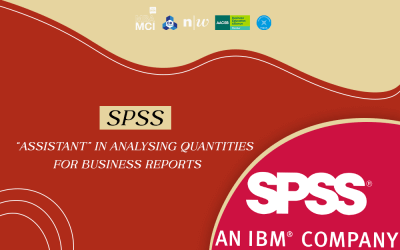 Ben Heineman has held senior positions in business, law, and government, is a senior fellow at Harvard’s Law and Kennedy Schools, and is author of High Performance With High Integrity (Harvard Business Press, 2008).
Ben Heineman has held senior positions in business, law, and government, is a senior fellow at Harvard’s Law and Kennedy Schools, and is author of High Performance With High Integrity (Harvard Business Press, 2008).
CEOs must respond quickly, decisively and comprehensively to investigate and address wrongdoing as soon as they learn of it.
Though it may seem common sense, that last phrase — “as soon as they learn of it” — seems repeatedly to elude, and then to haunt many a CEO, including high-profile ones. The key point for business leaders — and one that I would often make to executives when I was at GE — is this: You own the problem the instant you hear about. You will be judged by every action you take, or don’t take, from that moment on.
The trials and tribulations of News Corp, as underscored by the recent findings of a parliamentary committee, and of Walmart, as detailed in the recent New York Times allegations of Walmart bribery in Mexico, illustrate vividly the adverse consequences when this fundamental governance rule is not followed.
Rupert Murdoch did not respond to initial reports of illegal phone hacking by News Corps’ UK tabloid, the News of the World. Lee Scott, then Walmart CEO, apparently did not respond to initial reports of illegal bribery in Mexico. These failures have created towering problems for their respective companies.
Both CEOs initially failed to act — some years ago, during the 2005-2006 period. Both companies today face a wide variety of significant questions about civil legal liability, size of damages/penalties, criminal actions by government, other adverse governmental action (affecting fitness to operate) and governance failures. The boards of directors have been forced to launch wide-ranging independent, internal investigations from a defensive posture due to public exposure of possible illegality (or imminent public disclosure in Walmart’s case) and have lost control over explosive issues. Other harm to the companies — time and effort devoted to problems and not business, loss of reputation, uncertainty about the future of leaders — is palpable.
Had Murdoch and Scott organized and launched such wide-ranging inquiries into the specific problem, other related problems and root causes more than five years ago — and followed up with appropriate discipline, alteration of practices, systems changes and process improvements — they, and their companies, would not be in such straits today. (It’s important to clarify that CEOs should not investigate themselves, which is truly a cardinal sin. Nor should they pick up the phone and start questioning potential witnesses, which is a disaster. By “investigate,” I mean they should organize a proper investigation with independent legal and accounting experts.)
Although there will be myriad important legal and governance lessons from both the News Corp and Walmart cases, none is more important for business leaders than the imperative to act decisively in the face of demonstrable wrongdoing, and not engage in willful ignorance and indifference with the hope the problem will remain hidden. (See my more detailed analyses of governance issues for News Corp and Walmart.)
When Rupert Murdoch learned of a criminal plea by the “royal editor” at the News of the World in 2006 for phone hacking, he should have ordered a complete internal inquiry into how high and widespread was the practice, what were the causes and what should be done. (Murdoch was very involved in the operations of his UK tabloids and it is not every day that one of your reporters is guilty of a crime due to reporting.) But because, as the parliamentary committee termed it, “he turned a blind eye and exhibited willful blindness to what was going on in his companies and publications,” News Corp and its UK subsidiaries now face three police investigations, one judicial inquiry, one parliamentary inquiry and a regulatory inquiry into News Corp’s fitness to own a controlling share inBSkyB, the British pay-TV company. Other serious inquiries relating to bribery or fitness to hold licenses may follow in the U.S.
When Lee Scott learned in the fall of 2005 and early 2006 of a whistleblower’s detailed claims of a bribery scheme in Mexico which the CEO of Walmart Mexico allegedly orchestrated, he, too, should have ordered a full and complete investigation as some outside and some inside investigators recommended. Instead, according to the Times story, he refused that request. The matter was sent back to Mexico to a lawyer allegedly at the center of the bribery conspiracy who killed the investigation. Today, Walmart management faces an independent inquiry of outside experts ordered by the board of directors that could spread beyond Mexico. It also confronts (for starters) investigations by the U.S. Department of Justice, the SEC and the Mexican government as well as the inevitable plaintiffs’ suits.
Of course, the problems at both News Corp and Wal-Mart were deeper. In News Corp’s UK tabloid and Walmart’s Mexican subsidiary, there appears to have been a flawed culture that not only failed to prevent illegality but positively promoted it. It also appears that both CEOs did not care about such an integrity culture, at least in those corporate units, because to do so might undermine temporary commercial success.
But, in these two similar cases, the failure to confront problems when they arose, however painful at the time, has geometrically increased the size of the scandal and the size of the consequences for both News Corp and Wal-Mart.
While there will be many other important lessons from these cases, the current travails of both News Corp and Walmart thus throw into sharp relief the paramount duty of a CEO to investigate wrongdoing promptly and thoroughly because you own the problem the instant you hear about it.



